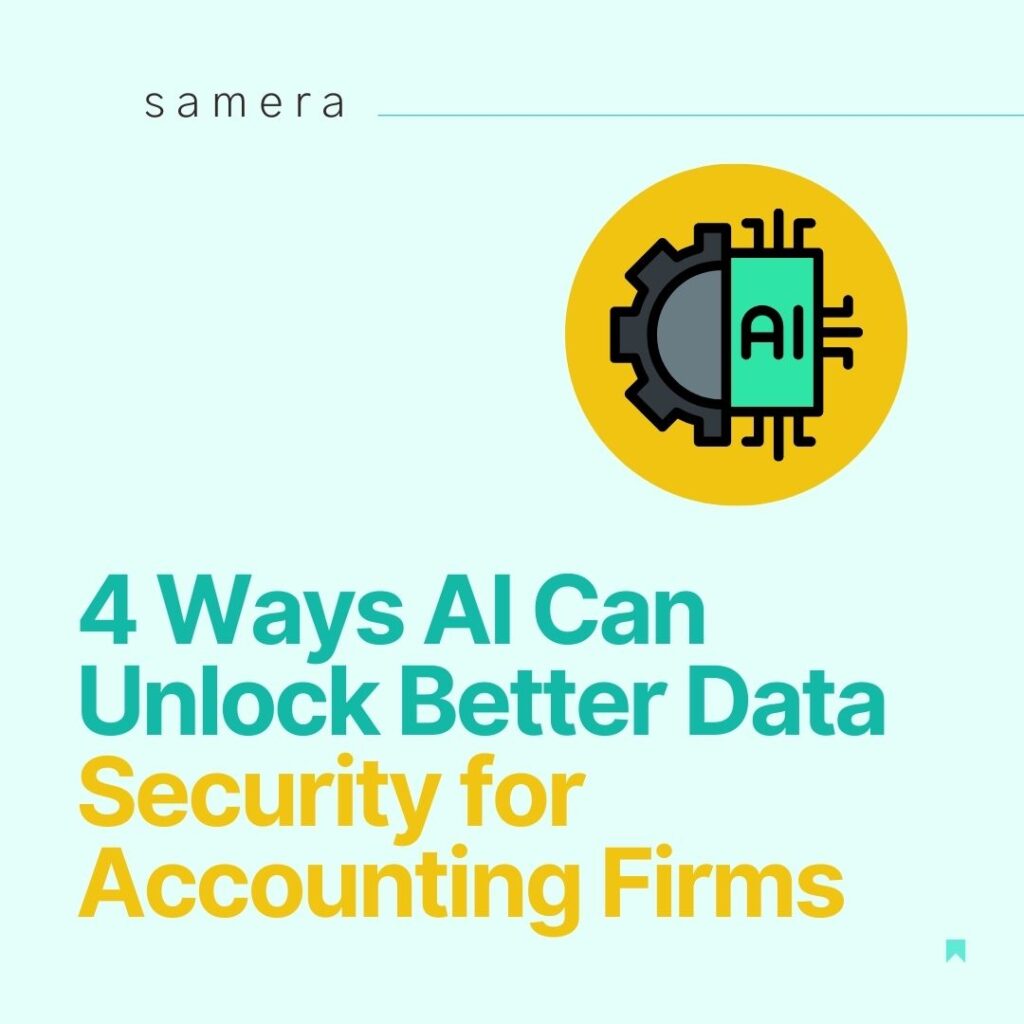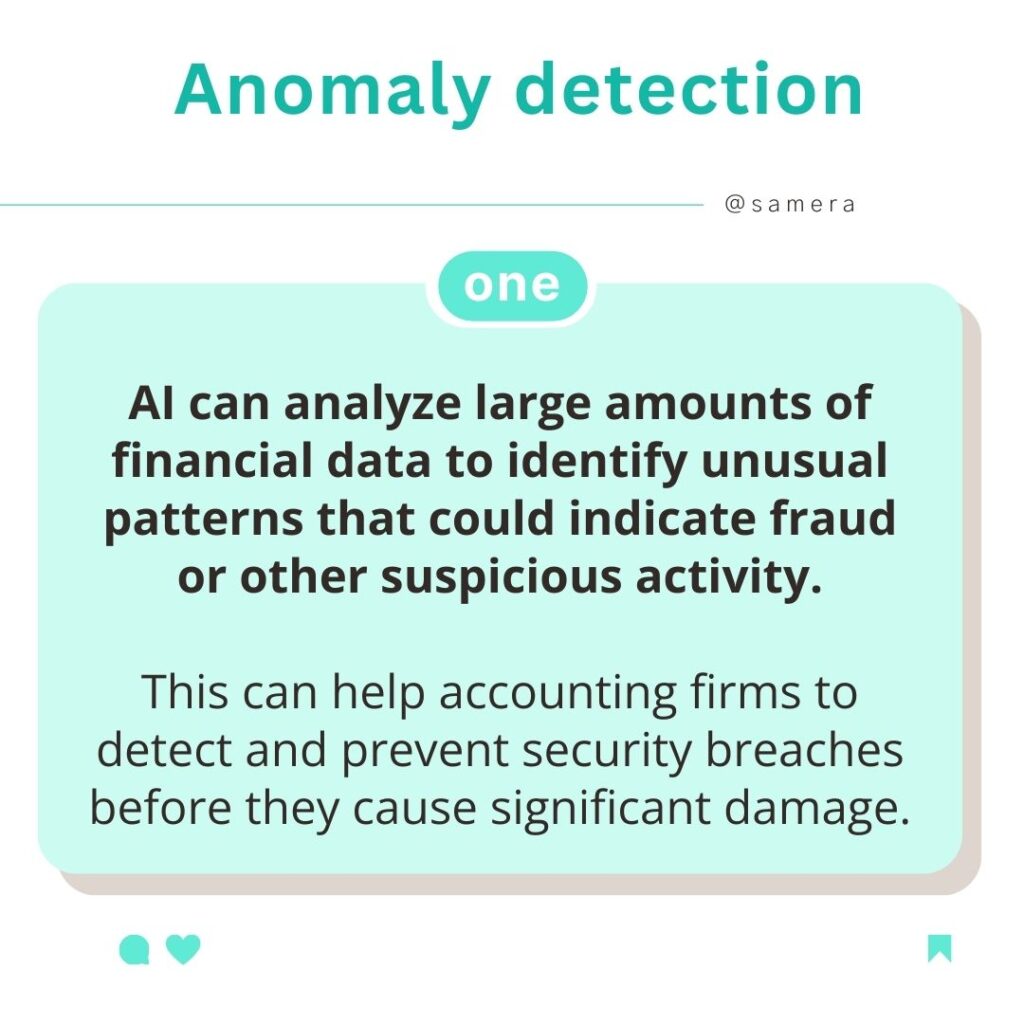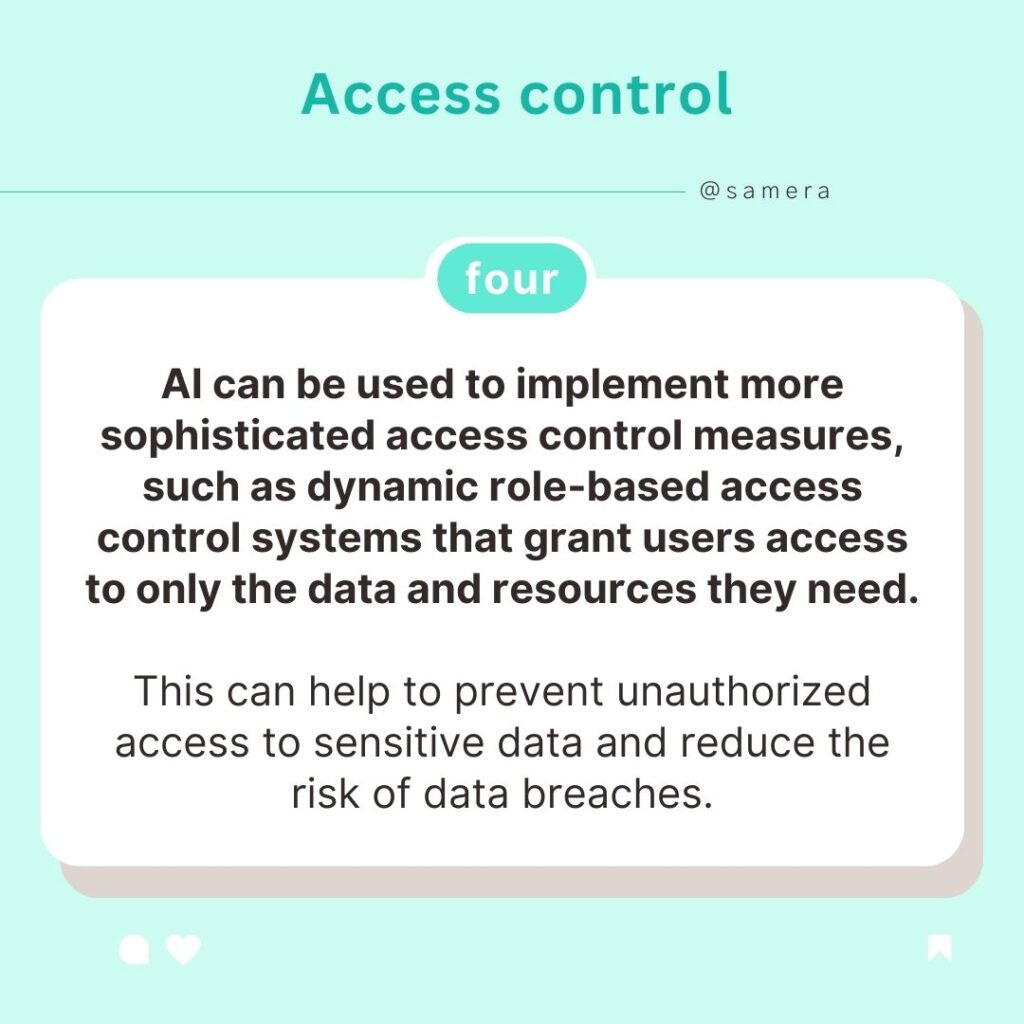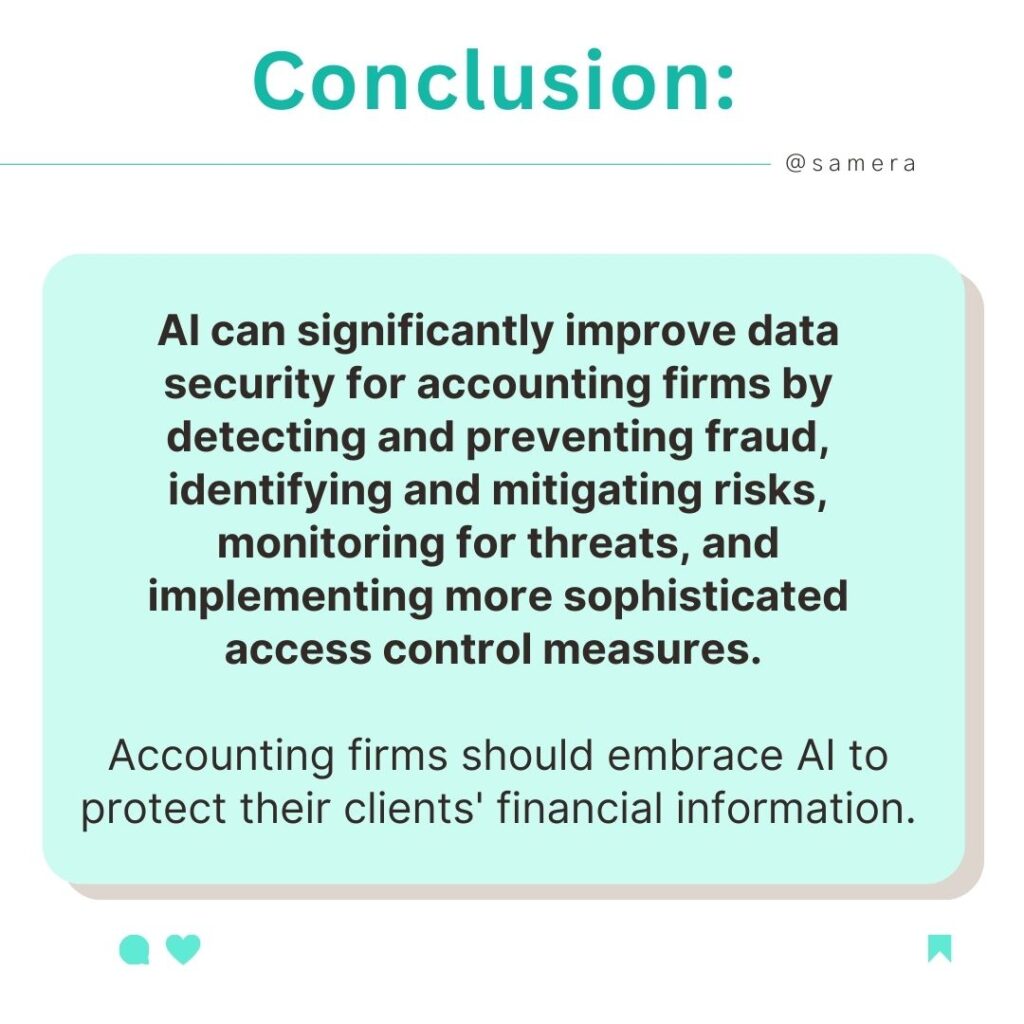Accounting businesses manage sensitive financial information for their clients, including tax identification numbers, bank account details, identification proofs, and more, thus data security is a major concern. In an industry that is already extremely exposed to IT security risks, Accounting Today reports that since the onset of the pandemic, cyber-attacks on accounting companies have increased by 300% [1].
Sensitive customer data loss can have adverse impacts on both the end user and the accounting company. Therefore, stringent measures and checks must be in place to protect sensitive data because it might potentially interfere with company operations and result in a loss of credibility and clientele.
This is where Artificial Intelligence (AI) can prove to be extremely resourceful for accounting firms looking to improve data security and fend off cyberattacks as these emerging technologies help swiftly analyse scores of data and flag a wide variety of cyber risks. Accounting companies can thus leverage AI to properly examine their network security, find flaws, and create a strong cyber security strategy.

In this blog, we will discuss 4 ways AI helps accounting firms strengthen data security.
Why AI-Enabled Data Security is Critical for Accounting Firms
The possibility of attacks from malicious actors accessing linked devices or systems rises as digitalisation advances, making AI an ever-crucial part of accounting cybersecurity. Due to its improved capacity to analyze huge amounts of data for abnormalities and indicate risk, AI will revolutionize cybersecurity.
The issue for organizations with AI capabilities is to take advantage of the chance to strengthen their security while avoiding the risk that AI-enabled technologies may add another source of vulnerability. Organizations all around the globe have learned the hard way that in recent years, cybercriminals have taken use of breakthroughs in AI to increase the frequency and severity of their assaults.
4 Ways AI Improved Data Security for Accounting Firms
Pre-emptive Cyberattack Detection & Prevention
AI-enabled solutions can be utilised to continuously monitor network traffic and quickly identify possible cyberattacks. Network traffic may be analyzed by AI systems to spot trends that might point to a cyberattack. This can aid accounting companies in thwarting cyberattacks before they do serious harm.
Advanced analytics and machine learning platforms can rapidly sift through the large amount of data produced by security tools, spot outliers, assess the data from the thousands of new data points that are a part of the network, and be trained to differentiate between safe and unsafe files, connections, devices, and users. Platforms that map and visualize network and asset data using AI may provide users with a real-time view of an increasing business threat surface. Ultimately, all this can enable your organization to create and optimize policies and procedures to increase its cyber resilience more effectively by using predictive insights from AI analysis.

Adaptive Multi-Factor User Authentication
User activity and behaviour details can be used to prevent unauthorized access when suspicious behaviour is discovered. AI can be employed to watch out for indications of device tampering. This form of surveillance can help stop illegal users from using any gadgets.
Here, artificial intelligence can help with user authentication and stop unauthorized access to critical data. AI systems are able to analyze user behaviour and spot trends that can point to fraud. The AI in a system acquires and interprets contextual data in adaptive multi-factor authentication. A risk score is generated using these data. Based on this risk assessment, the user authentication strategy is selected. This can aid accounting companies in guarding against unauthorized access to private financial data.

Encrypted Data Security
Accounting companies currently routinely encrypt both structured and unstructured data to safeguard sensitive, confidential, and proprietary information – all that bookkeeping firms are a treasure trove for. AI may be applied to accounting to enhance encryption and data protection. To recognize and categorize sensitive data, such as bank records or customer information, for instance, AI algorithms can be utilized. This can make it easier for accounting companies to secure and safeguard sensitive data.
Accounting businesses may embed and subsequently recover concealed information in plain-looking text using AI-based deep learning algorithms. These approaches operate by changing text glyphs, or the specific font shape patterns, to encode information. The technique keeps the text and the secret data and is nearly hard to spot with the unaided eye.

Intelligent Data Access Vigilance
AI can also be extremely useful for tracking data access and spotting any irregularities that would point to unauthorized access. AI systems, for instance, may examine access records to find unusual patterns of behaviour. Accounting businesses may use this to find and stop data breaches. AI may also be used in accounting to stop financial crime and detect fraud. AI systems can analyse financial data and spot trends that can point to fraud. This can assist accounting businesses in identifying and stopping fraud before it results in large financial losses.
When a flag for unauthorised or unidentified data access is raised, AI can help increase the effectiveness of security personnel by automating time-consuming tasks and streamlining containment and response. Automation, an AI technology that accounting outsourcing firms are increasingly leveraging these days, can also help shorten the interval between threat identification and security restoration, helping mitigate potential data breaching efforts. Further, AI can also assist analysts in managing a rising number of more sophisticated security risks at scale when combined with automated decision-making and assessment. AI-powered systems can offer better context for security alert prioritisation and response, quick incident response, and reveal root causes in order to reduce future vulnerabilities.

Did You Know?
- AI-powered security solutions can help accounting firms reduce their risk of cyberattacks by up to 70%. (Source: IBM, 2023 Cost of a Data Breach Report)
- Accounting firms that use AI-based security solutions are able to detect and respond to cyberattacks up to 50% faster than those that don’t. (Source: Deloitte, 2023 Global Accounting Technology Trends Survey)
- AI-enabled security solutions can help accounting firms save up to 30% on their annual cybersecurity costs. (Source: Gartner, 2023 Accounting Outsourcing Customer Satisfaction Survey)
- Over 60% of accounting firms plan to invest in AI-powered security solutions in the next 2 years. (Source: KPMG, 2023 Global Accounting Outsourcing Benchmarking Study)
- Accounting firms that use AI-based security solutions are more likely to achieve compliance with industry-specific regulations and data protection standards. (Source: Association of International Certified Professional Accountants, 2023 AICPA Accounting Technology Outlook)
- The global market for AI-enabled data security solutions is expected to reach $30 billion by 2027. (Source: Markets and Markets, 2023 Global AI-enabled Data Security Market Report)
Conclusion
AI delivers much-needed analysis and threat detection that can be used by cybersecurity experts to decrease breach risk and strengthen security posture because humans are no longer capable of scaling to sufficiently guard the dynamic corporate attack surface. In terms of security, AI can categorise risks, quickly identify any malware on a network, direct incident response, and discover intrusions before they happen.
An AI-driven cyber strategy, powered by data analytics and cloud computing, enables accounting firms to forecast, identify, and block breaches automatically and proactively. To achieve AI-optimised data security, accounting businesses will have to involve a variety of stakeholders, right from IT and non-accounting leadership to accountants and end users. This will foster improved client confidence and strengthened data culture with a progressive and iterative cybersecurity strategy in place that is in line with company goals.

Bibliography


